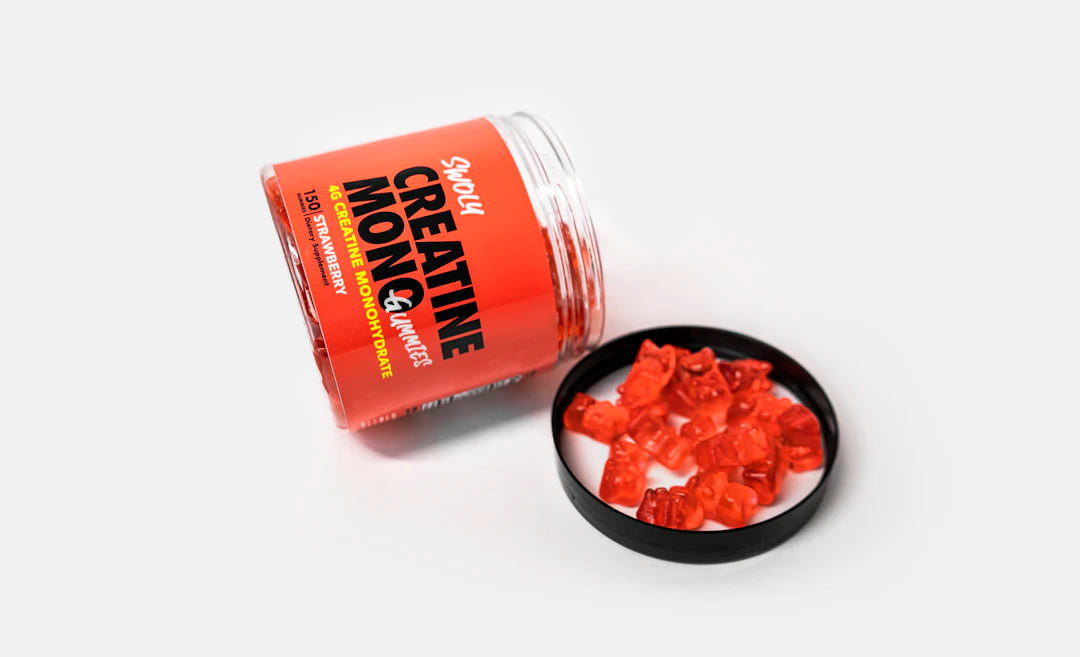
Choose the Best Creatine Supplement for Your Goals
Frequently Asked Questions
1. What is creatine and how does it benefit athletes?
2. What are the different types of creatine supplements available?
3. How do I choose the right creatine supplement for my needs?
4. What is the recommended way to use creatine effectively?
5. Are there any side effects associated with creatine supplementation?
When it comes to enhancing athletic performance and supporting muscle growth, creatine supplements are often at the forefront of discussions among fitness enthusiasts. But with the number of options available on the market, how do you choose the right creatine supplement for your specific needs? In this comprehensive guide, we will explore what creatine is, its benefits, different types available, and the criteria you should consider when selecting the best creatine supplement for your regimen.
Understanding Creatine
Creatine is a substance that occurs naturally in muscle cells. It helps your muscles produce energy during high-intensity exercise or heavy lifting. As a supplement, creatine is one of the most researched and effective products available for athletes and bodybuilders alike. It is considered safe for healthy individuals when used as directed.
The Benefits of Creatine Supplements
Before delving into how to choose the right creatine supplement, let’s explore some of the major benefits that might convince you to buy creatine monohydrate:
- Improved Athletic Performance: Creatine can boost your performance in repeated bouts of high-intensity exercise, making it ideal for athletes.
- Increased Muscle Mass: Regular use of creatine can lead to gains in muscle size and strength due to enhanced energy production.
- Faster Recovery: Creatine may reduce muscle cell damage and inflammation, enhancing recovery times.
- Cognitive Benefits: Some studies suggest that creatine can also have positive effects on cognitive function, particularly during periods of sleep deprivation.
Types of Creatine
There are several types of creatine available in the market, each with its own unique benefits and properties. Here are some of the most common forms:
Creatine Monohydrate
This is the most well-researched and widely used form of creatine. It is known for its effectiveness and affordability, making it an excellent choice for beginners. If you’re looking to buy creatine monohydrate, you can be assured that it has a proven track record.
Creatine Ethyl Ester
Some believe that this form of creatine has better absorption rates than monohydrate. However, research on its effectiveness is limited compared to creatine monohydrate.
Buffered Creatine
Often marketed as a "less acidic" option, buffered creatine may be easier on the stomach for some users. Still, more studies are needed to fully understand its efficacy.
Creatine HCl
This hydrochloride form of creatine is believed to dissolve in water better than other forms, potentially leading to faster absorption. However, its cost can be higher.
Micronized Creatine
This form features smaller particles of creatine, which may enhance solubility and absorption. Users often report less bloating compared to traditional creatine monohydrate.
How to Choose the Right Creatine Supplement
Selecting the right creatine supplement can feel overwhelming, but focusing on specific criteria can simplify the process. Here are some essential factors to consider:
Quality and Purity
Look for creatine powders that list minimal ingredients, ideally containing 100% pure creatine without fillers or additives. Choosing a reputable brand can ensure you’re getting a quality product.
Price
While cost shouldn’t be the only factor, it’s wise to compare prices relative to the quality. Creatine monohydrate is often the most cost-effective, providing great value for your money.
Type of Creatine
As discussed earlier, different types of creatine serve different purposes. Determine your goals—whether it's muscle gain, improved recovery, or athletic performance—and choose a type that aligns with those objectives.
Mixability
Some creatine powders can clump up or do not dissolve well in liquids. Choosing a creatine that mixes easily into your preferred beverage can enhance your experience.
User Reviews
Feedback from other users can offer great insights into a product's effectiveness and potential side effects. Look for reviews that highlight both the positive and negative experiences of users.
How to Use Creatine Effectively
Once you’ve selected your creatine supplement, it’s essential to understand how to use it effectively. Here are a few guidelines:
Loading Phase
Some suggest a loading phase of 20-25 grams daily for 5-7 days, divided into smaller doses, to saturate your muscles quickly with creatine. However, this step is optional.
Maintenance Phase
After the loading phase, a daily intake of 3-5 grams is typically sufficient for maintenance. Consistency is key to maximizing creatine's benefits.
Timing
While the timing of creatine intake can be flexible, many users prefer to take it post-workout for optimal muscle uptake. However, you can take it at any time of the day that fits your routine.
Hydration
Creatine can cause water retention in muscles. It’s crucial to stay hydrated to support its effectiveness and to mitigate potential side effects.
Potential Side Effects
Creatine is generally considered safe for healthy individuals, but it’s essential to be aware of possible side effects:
- Gastrointestinal Issues: Some may experience stomach discomfort or bloating. Taking it with food can help reduce these effects.
- Weight Gain: Due to water retention in muscles, you may notice an initial increase in weight, which is typical and not necessarily fat gain.
- Kidney Stress: Though studies show minimal risk for healthy individuals, those with kidney issues should consult their doctor before using creatine.
Your Path to Peak Performance
Choosing the right creatine supplement doesn’t have to be a daunting process. By understanding the different types of creatine, evaluating quality, considering your goals, and following effective usage guidelines, you can enhance your workout regimen significantly. With the right product, you not only set yourself up for potent athletic performance but also take a step closer to achieving your fitness goals. Start your journey today and unleash your full potential!





